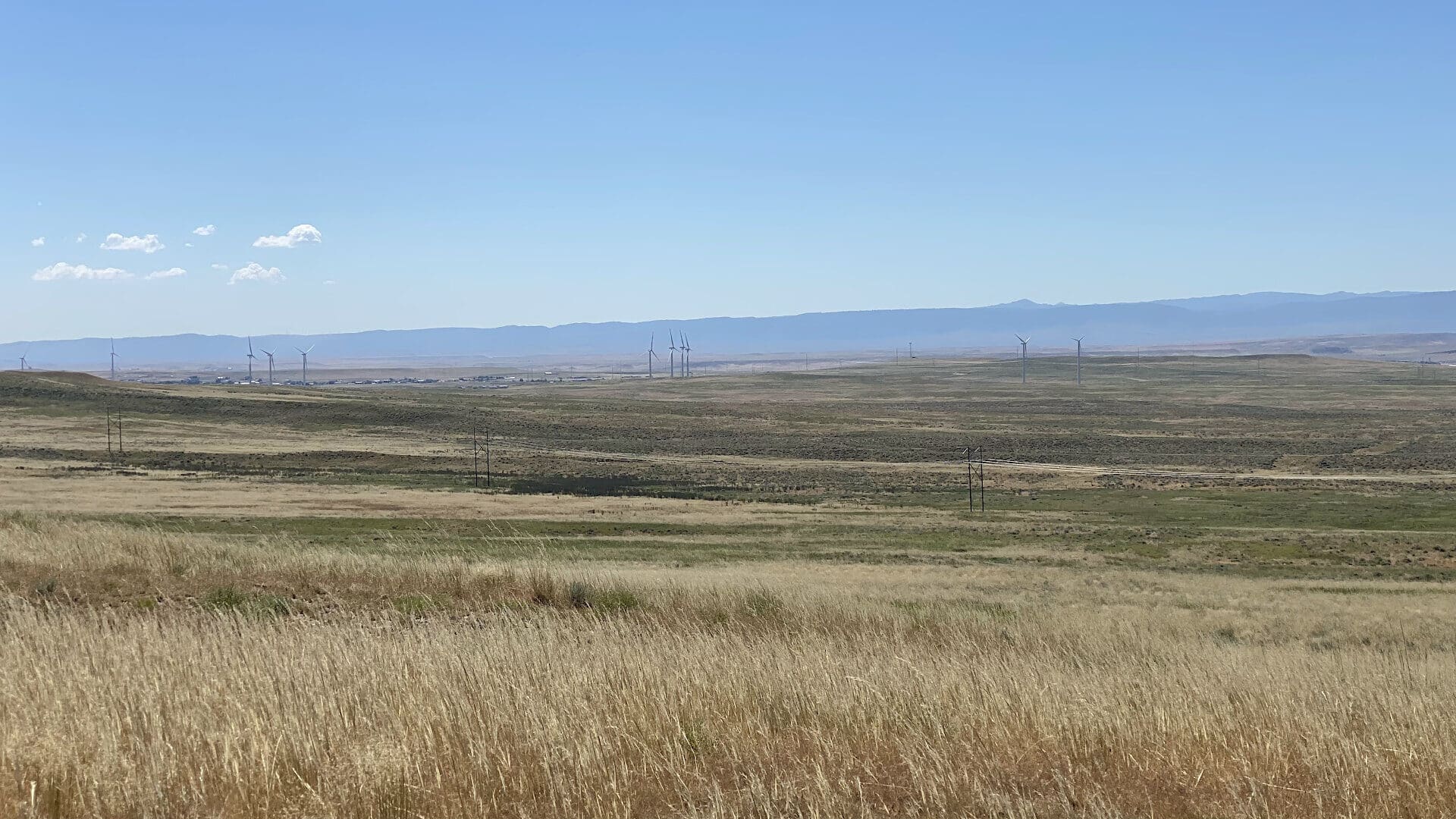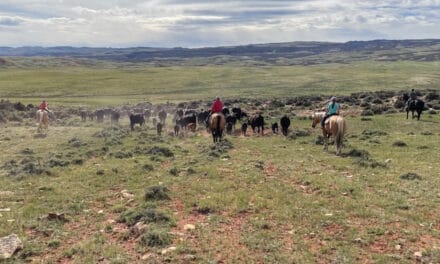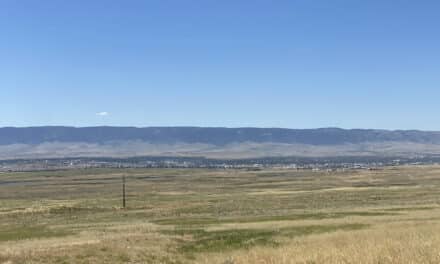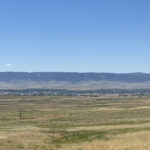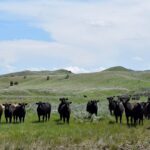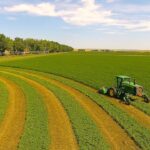Enhancing Financial Security with Wyoming's Unique Appeal
Introduction
Investing in land has long been recognized as a pathway to financial security and wealth creation. Land investments provide tangible assets that can appreciate over time, diversify portfolios, and offer stability amidst market volatility. When considering land investments, Wyoming emerges as a particularly attractive destination. This article explores the reasons why investing in land is beneficial for financial security, and why Wyoming’s land presents unique advantages that make it a compelling choice for investors seeking long term prosperity.
Benefits of Investing in Land
Income Generation
Investing in land can generate income streams, further bolstering financial security. Land can be utilized for various purposes, such as leasing for agriculture, timber, mineral extraction, or commercial development. These activities can provide regular income, making land investments not only a store of value but also a source of cash flow. Income generated from land investments can support ongoing expenses, fund other investments, or provide a steady stream of passive income during retirement.
Long-Term Appreciation Potential
Land has a history of long term appreciation, making it an attractive investment for those seeking wealth accumulation over time. While past performance is not indicative of future results, land investments have demonstrated consistent appreciation potential. The limited supply of land, coupled with growing population and demand for real estate, can drive up land values over the years. As a result, investors may benefit from capital appreciation, increasing the value of their land holdings and enhancing their financial security.
Tangible Asset and Inflation Hedge
Investing in land provides the advantage of owning a tangible asset. Land is a finite resource with intrinsic value that can withstand economic fluctuations and retain its worth over time. Unlike paper assets that can lose value due to market volatility, land offers stability and acts as a hedge against inflation. As the value of currencies erodes over time, land tends to maintain or appreciate its value, protecting investors’ purchasing power and preserving their wealth.
Portfolio Diversification
Land investments offer a valuable opportunity for portfolio diversification. By diversifying their investment holdings across different asset classes, such as stocks, bonds, and real estate, investors can mitigate risks and potentially enhance their returns. Land investments provide a distinct asset class that often moves independently of the stock market. This diversification can reduce the overall risk exposure of an investment portfolio and contribute to long term financial security.
Wyoming’s Unique Appeal for Land Investors
Stable Real Estate Market
Wyoming’s real estate market stands out for its stability and resilience. The state’s controlled land development and low population density contribute to a balanced supply and demand equilibrium. Unlike volatile urban markets, Wyoming’s real estate sector maintains a steady performance, mitigating risks associated with speculative bubbles and rapid price fluctuations. Investors in Wyoming land can find confidence in the market’s stability, providing a solid foundation for long-term financial security.
Tax Advantages
Wyoming offers significant tax advantages that enhance the financial benefits of land ownership. Wyoming’s property taxes are low compared to many other U.S. states and the state has no personal or corporate income taxes, allowing investors to retain more of their earnings. This favorable tax environment extends to capital gains generated through property appreciation or land development projects. With reduced tax burdens, investors can maximize their financial returns, allocate resources toward property improvements, and strengthen their long-term financial security.
Emerging Technological Advancements
Wyoming is also making strides in fostering a technology driven and innovation focused economy. The state has implemented various initiatives to attract tech companies and entrepreneurs, creating a conducive environment for startups and technological advancements. Investing in land in Wyoming’s emerging technology hubs or business districts provides opportunities to capitalize on the growth of this sector. Land investments in technology-driven areas can offer potential long-term financial security as the state continues to nurture its innovation ecosystem.
Natural Resource Potential
Wyoming is blessed with abundant natural resources, including coal, natural gas, oil, and trona. These resources form a significant part of the state’s economy and present opportunities for land investors. Acquiring land with mineral rights or leasing opportunities can provide substantial returns. As global demand for energy resources continues to rise, investing in Wyoming land with mineral deposits can yield significant financial benefits. Wyoming’s extensive coal reserves, for example, have fueled not only the state’s economy but also power generation across the country. Land investments in the natural resource sector offer a unique avenue for investors to tap into the state’s resource rich economy and potentially reap substantial returns.
Agricultural Potential
Wyoming’s fertile soils and favorable climate create ideal conditions for agriculture and ranching. The state’s agricultural industry, including cattle and sheep production, has a long-standing heritage and continues to thrive. Investing in agricultural land or ranches in Wyoming provides opportunities for income generation through livestock operations, hay production, or crop cultivation. The state’s commitment to sustainable farming practices and its reputation for high-quality agricultural products further enhance the financial potential of land investments in this sector.
Homesteading in Wyoming today offers a range of possibilities due to its favorable climate for agriculture, supportive community for self-sufficient living and vast open spaces. Wyoming presents numerous opportunities for homesteading due to its available land. With careful planning, adaptation to the unique challenges, and a passion for self-sufficiency, homesteading in Wyoming can be a fulfilling and rewarding lifestyle choice.
Tourism and Recreation
Wyoming’s natural beauty, including iconic landmarks like Yellowstone National Park and the Grand Tetons, attracts millions of visitors each year. Land investments in areas close to popular tourist destinations or outdoor recreational areas offer the potential for substantial financial gains. Developing vacation rentals, resorts, or recreational facilities can generate steady income streams and capitalize on the growing demand for unique travel experiences. Wyoming’s reputation as an outdoor enthusiast’s paradise positions land investors to benefit from the state’s thriving tourism industry.
Wyoming’s vast wilderness invites visitors to engage in a wide range of outdoor activities. The state is a paradise for hikers, with countless trails weaving through scenic mountains, canyons, and forests. Fishing enthusiasts can cast their lines in numerous rivers, lakes, and streams, renowned for their trout populations. Wyoming’s rugged terrain also provides excellent opportunities for rock climbing, mountain biking, horseback riding, wildlife photography and big game hunting.
Conclusion
Investing in land is a powerful strategy for enhancing financial security and building long term wealth. Wyoming’s unique appeal as a land investment destination lies in its stable real estate market, tax advantages, diverse economy, and appreciation potential. The state’s natural resources, agricultural potential, tourism industry, and emerging technological advancements contribute to its attractiveness to investors. By capitalizing on Wyoming’s distinct advantages and the opportunities it offers, investors can secure their financial future and unlock the potential for substantial returns on their land investments.
For a hands-on approach to acquiring Wyoming (and Montana) land, please see “How to Buy Land in Wyoming and Montana“.

